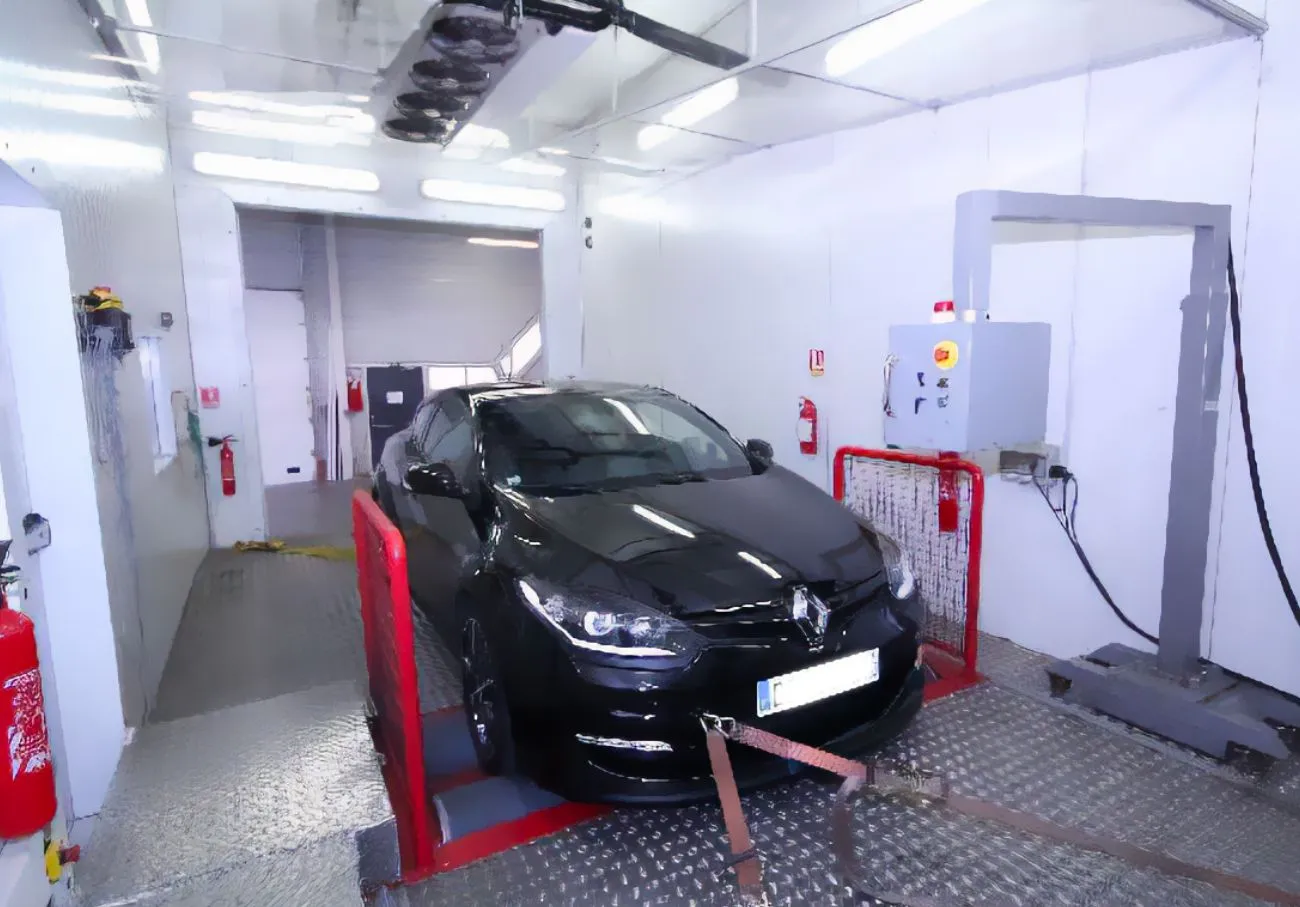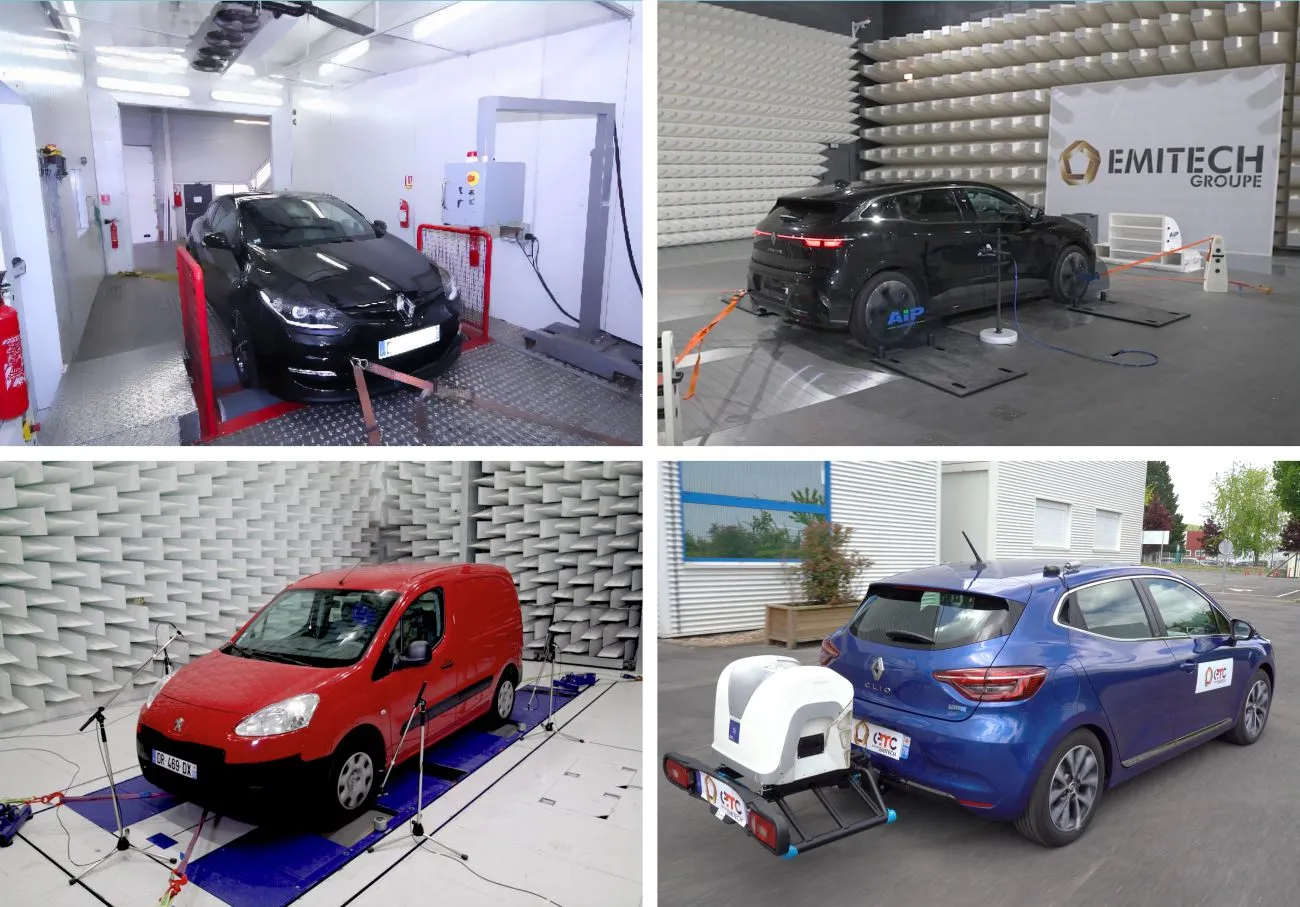Climatic tests on vehicles
Thermal, hybrid and electric engines
Validate the performance and reliability of your vehicles under extreme environmental conditions
The Emitech Group offers climatic testing of complete vehicles - thermal, hybrid and electric - to simulate their behaviour in extreme temperature and humidity environments. These tests are essential for assessing the overall behaviour of the vehicle and its on-board systems in a controlled environment.
Ask for a quote
Why carry out climatic tests on vehicles?
Vehicles operate in a wide range of climatic conditions that can affect :
- Engine and battery performance,
- Thermal comfort of the passenger compartment,
- The operation of on-board electronic systems (ECU, BMS, ADAS),
- the durability of materials, fixings and mechanical protection.
Climate testing allows us to:
- Validate start-up, load, consumption, and range under severe conditions,
- Test cooling, heating, and air conditioning systems,
- Identify thermal failures or performance deviations,
- Prepare for certification or approval campaigns.
Why climate tests on electric vehicles with recharging?
Climate testing, coupled with charging sequences at the terminal, is essential for:
- Verifying the reliability of charging across all temperature ranges.
- Validating the thermal performance of the vehicle: batteries, electronics, motorization.
- Observing the behavior of the BMS (Battery Management System) under extreme conditions.
- Testing the preconditioning and air conditioning systems.
- Identify any temperature-related malfunctions (drift, power loss, communication errors).
Test sequence
Test methodology
- Placement of the vehicle in large-volume climatic chambers
- Simulation of ranges from -30°C to +50°C, with dynamic regulation.
- Hygrometric control (from 10% RH to 95% RH)
- Controlled ventilation: to simulate real air flows (parking, simulated driving).
- Dynamic cycles: starting, charging cycles, simulated driving, etc
- Continuous monitoring: battery, engine, cabin, electronics and coolant temperatures
- Possibility of adding a charging point for electric vehicle or rechargeable hybrid (BEV, PHEV) trials with AC slow charge, DC fast charge, simulation of public charging points (Mode 2, Mode 3, Mode 4).
Examples of scenarios
- Cold start for thermal or electric engine (-30°C)
- Electric battery charging at -20°C or +45°C
- Driving cycle in hot climate (> 40 °C)
- Validation of the air conditioning and heating system in extreme climates
- Analysis of battery pack thermal management
Talk to our experts in vehicle climate testing
Types of vehicle concerned
- Electric vehicles (BEV): AC/DC charging tests, battery behaviour, rapid charging in extreme cold.
- Hybrid vehicles (HEV, PHEV): dual-source thermal management (engine + battery), automatic mode switching, plug-in charging.
- Thermal vehicles: cold start, warm-up time, efficiency of de-icing and ventilation systems.
Parameters measured
- Voltage/current curves during recharging.
- Charging time depending on weather conditions.
- Battery temperature evolution and thermal management.
- Energy consumption of auxiliary systems (heating, ventilation, defrosting).
- Analysis of vehicle behavior after recharging (starting, driving off, simulated driving).
Technical resources of the Emitech Group
- Large-volume climatic chambers with full vehicle access.
- AC and DC compatible charging terminals up to 150 kW
- 2x2 and 4x4 air-conditioned roller benches for dynamic testing.
- CAN data acquisition, multi-channel electrical and thermal measurement
Expertise and technical support
- Definition of test profiles according to standard or customer-specific requirements.
- Real-time monitoring and adaptation during testing.
- Detailed test report and technical recommendations.
Why choose the Emitech Group?
- Comprehensive expertise in climatic and electrical vehicle testing.
- Unique facilities in France for testing recharging under controlled temperatures.
- Tailor-made support for your validation or development campaigns.
Needs
Discover a selection of additional resources that explore topics related to this page including regulatory contexts, technical articles, and specific areas of expertise. These materials provide further insight to help you better understand the key challenges and available solutions.
Contact us for a quote



